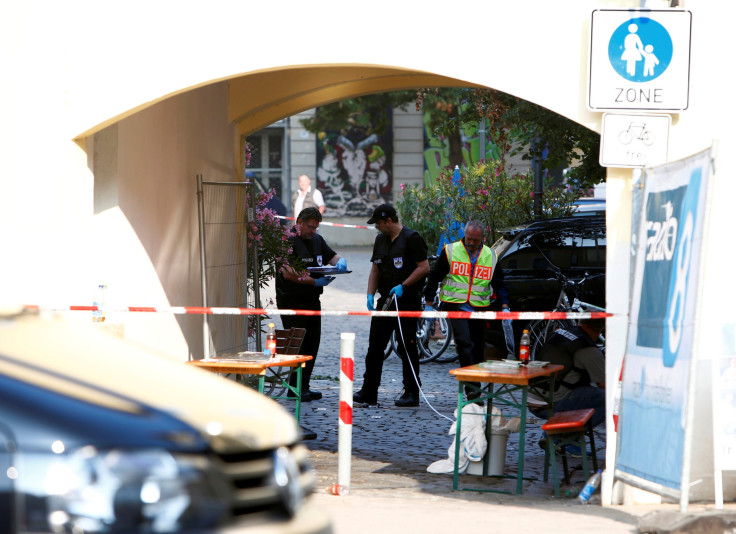ISIS In Germany? Islamic State Ansbach Suicide Bombing After Munich Attack Has Country On Edge

Following four attacks in Germany within the last week that have left 10 people dead and 34 injured, officials said Monday the risk of additional terror remained high as connections to the Islamic State group, also known as ISIS, began to emerge.
“The danger of attack has been high for a long time and remains high,” said Interior Ministry spokesman Tobias Plate, Reuters reported.
Germany's police said they had 410 leads on possible terrorists among refugees who have entered the country, local media reported. The attacks have heightened security concerns and reignited debates over the country’s open arms refugee policy.
Authorities said Monday they found a video on the phone of the 27-year-old Syrian refugee who blew himself up Sunday in Ansbach, Germany, in which he pledged allegiance to the leader of ISIS Abu Bakr al-Baghdadi, the BBC reported. In the video, the man, who was not immediately identified by authorities, said he wanted to commit a “revenge attack” against Germans. The man’s application for asylum in Germany had been denied and he was scheduled to be deported to Bulgaria, Deutsche Welle reported.
“I can’t say at this moment why the deportation didn’t take place,” Plate said. Refugees are not deported directly back to Syria due to the dangerous conditions there, Plate said. Only 23 Syrians had asylum applications rejected in Germany last year.
The attack injured 15 people and authorities said they had discovered additional bomb-making equipment in the hostel where the man was living. The man arrived in Germany two years ago and reports said he had also tried to commit suicide and received some psychiatric care. ISIS’s Amaq news agency claimed the attack saying the name was a “soldier of the Islamic State,” the Guardian reported.
The attack in Ansbach comes after three other recent attacks in Germany. On July 18, an asylum seeker from Pakistan injured five people on a train when he attacked them with an axe. ISIS claimed the attacker had pledged his support to the militant group. On July 22, a German teenager shot and killed nine people at a shopping mall in Munich. The gunman in the Munich attack, who was also an Iranian national, spent more than a year planning the attack, though it did not appear to have any connection to ISIS.
On the same day as the attack in Ansbach, a Syrian asylum seeker was arrested in Reutlingen for allegedly killing a woman with a machete. Authorities said the machete attack between co-workers was likely a “crime of passion” and not linked to terrorism.
More than 1 million refugees entered Germany in 2015 under Chancellor Angela Merkel’s immigration policy. Despite criticism, Merkel has remained firm policy stance regarding refugees.
© Copyright IBTimes 2025. All rights reserved.






















